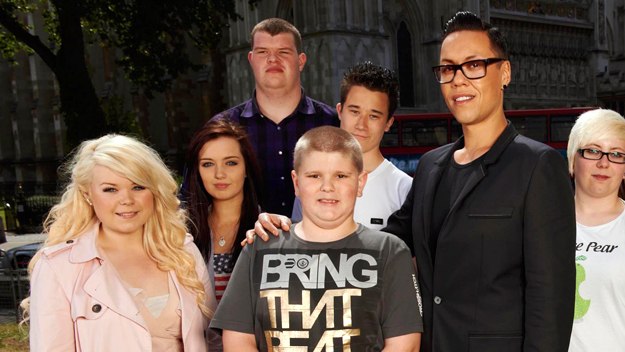
Getting to grips with grief
Losing someone special can be a devastating and confusing experience and it can feel impossible to see how you’ll ever get back on track. But, as raw as it may feel, grief is something you can and will get through. Everyone’s experience of grief is different there is no right or wrong way to handle it. Whilst you can’t turn back time to bring someone back, there are things that you can do to cope.
In our featured clip from Educating... What I Wish I'd Known, Tom struggles with grief after his stepbrother passes away. Unable to deal with his emotions, his behaviour quickly spirals out of control. Want to see the rest of his story? Check out the whole of Tom's short over on All 4.
Poll
Is it normal to struggle with grief?
Grief encounter
Check out our simple strategies for managing your grief and speeding up the healing process...
Understand your emotions
Grief brings with it a whole range of different emotions. Expect the initial shock, numbness and denial to give way to pain, sadness and even depression as you come to terms with what you’ve lost. Many people also experience anger at the unfairness of their loss or guilt that they were unable to prevent it happening. You may even feel relief when it’s all over, especially if someone you cared for has been suffering for a long time.
Let it all out
All of these emotions are perfectly natural and it’s healthy to embrace them. Don’t ‘bottle things up’, ‘keep your chin up’, ‘put on a brave face’ or ‘keep a stiff upper lip’ - expressing emotion is an important part of the grieving process and burying your feelings can make it even harder to heal.
Talk it through
Talking to friends and family about how you feel can be a good way to work through your emotions. Opening up to someone close who is grieving too can help you both to cope with the loss. Alternatively, confiding in a friend who is outside of the situation may let you concentrate on your own feelings without having to worry about anyone else.
Don’t rush it
Everybody heals at different rates and there is no set timeline for the grieving process. Don’t worry if it lasts a long time - healing takes as long as it needs to take and the pain will pass eventually.
Don’t worry if you struggle to grieve
Sometimes the emotions just won’t come, leaving you feeling guilty for not being a gibbering wreck. This is really common and perfectly natural. Grief often hits you weeks, months or even years later and you’ll probably find that once the dust has settled the floodgates will open.
Recognise the physical effects
Grief can also cause physical symptoms including headaches, dry mouth, weakness, nausea, a tight throat or chest, dizziness and breathlessness. It’s crucial to remember to look after yourself during this time – get as much sleep as you can and try and eat regularly (though both of these may be difficult). The physical symptoms should pass over time but, if you’re worried, go and see your doctor.
Remember to remember
Just because a memory is painful now doesn’t mean you’ll have to block it out forever. Over time the same memories that currently break your heart may bring you comfort and happiness later on. There are lots of ways to remember someone, from looking at photos or revisiting their favourite places to making a donation, planting a tree or getting involved in a cause close to their heart.
Sort the practical stuff
A death can bring with it lots of things that need to be sorted out. These can range from short-term issues such as arranging the funeral and organising the wake to really big things like dividing an inheritance, selling a property or finding somewhere new to live. If you’re worried about any of this, MacMillan have created a useful guide to what you can expect.
Seek professional help
Sometimes you just can’t cope on your own and there’s no shame in asking for help. This is especially true if you’ve lost someone in traumatic circumstances such as a suicide, an overdose, a murder, a sudden accident or a terrorist attack. If you find yourself struggling and feel that you need professional support, ask your GP about grief counselling.
Face things your way
There is no ‘right’ or ‘wrong’ way to grieve. People handle things differently and will face unique factors during their own experience of loss. Listen to people who want to help you and look for advice and support but, ultimately, give yourself permission to heal in your own time, on your own terms.
Everybody Hurts
Drowning in grief and not sure where to turn? The links on our support page should give you an idea of the help available.




